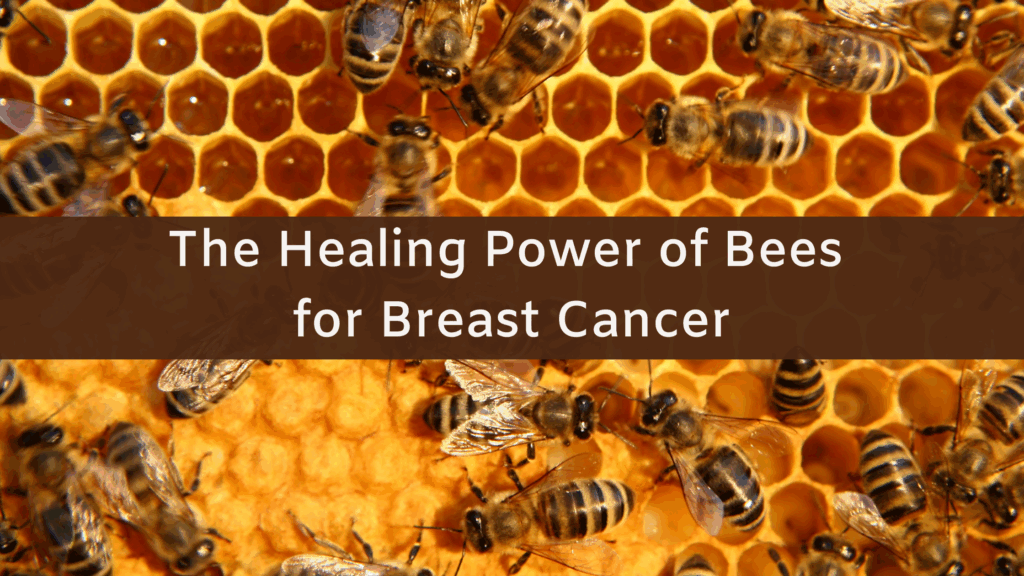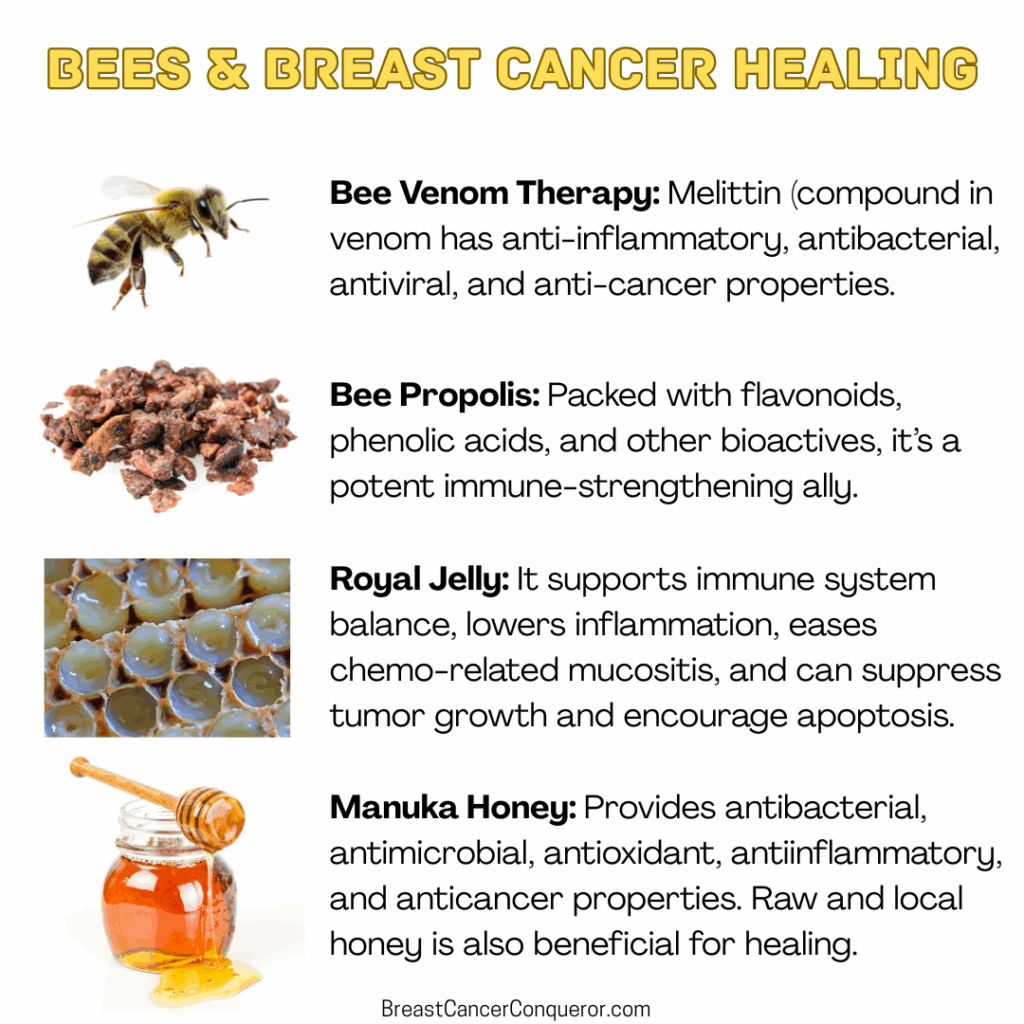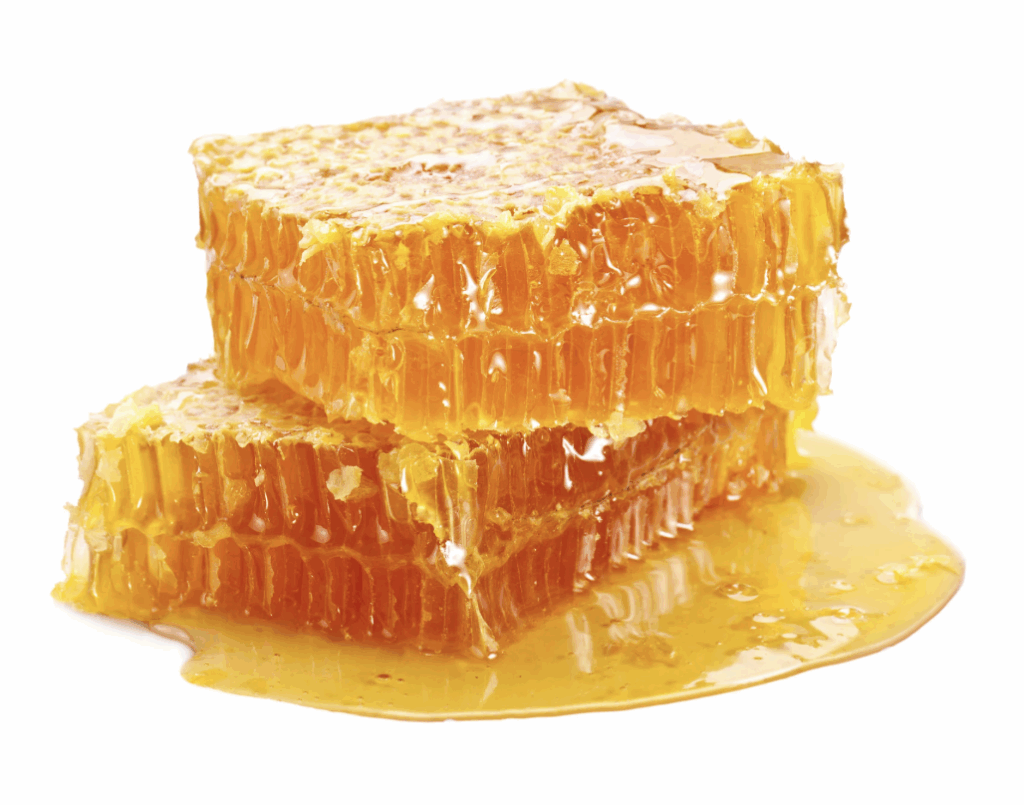
Quick Read:
- From honey to bee venom therapy, apitherapy is emerging as an effective complementary option in breast cancer support and longevity.
- Bee Venom Therapy can trigger programmed death in cancer cells while leaving healthy cells unharmed.
- Royal Jelly can suppress tumor growth and encourage apoptosis in breast cancer cells.
You are the queen bee of your healing journey and life—resilient, purposeful, and made to thrive. Just like the queen draws her strength from the hive, you too can draw from the incredible gifts bees provide and your Breast Cancer Conqueror “hive.”
From the life-extending nourishment of royal jelly to the cancer-fighting compounds in venom and propolis, bees offer more than sweetness—they offer science-backed breast cancer healing power. Harness their wisdom and step fully into your queen bee energy!
From honey and propolis to royal jelly and venom, apitherapy (the use of bee products for health) is emerging as an effective complementary option in breast cancer support and longevity—so let’s explore it!

1. Bee Venom Therapy
Yes, wild to think about, especially if you are someone who is terrified by bees, but Bee Venom Therapy (what you get from a bee sting) could be beneficial to your healing journey. It’s administered either through direct stings from live bees or via injections of purified venom.
Melittin, the primary component of bee venom, has been well documented (here’s 3,316 studies) for its anti-inflammatory, antibacterial, antiviral, and anti-cancer properties. In small doses, it can suppress inflammatory pathways by inhibiting key signaling proteins.
Here are some other reasons to talk to your team about Bee Venom Therapy:
- Apoptosis induction: In a recent landmark study, melittin was shown to trigger programmed death in cancer cells (including breast cancer) while leaving healthy cells unharmed.
- Targeting multiple cancers: Recent lab studies demonstrate that bee venom acts against liver, lung, prostate, leukemia, and breast cancer cells.
- Nanobees technology: Researchers at Washington University in St. Louis are exploring nanoparticle “nanobees” that deliver melittin directly to tumor cells, minimizing collateral damage. “Once the nanobee reaches a cancer cell, it fuses its lipid monolayer with the cancer cell’s membrane. Melittin then flows into the cell’s interior, where it attacks the mitochondria and triggers apoptosis (programmed cell death).” (Study)
- Triple-negative breast cancer potential: In 2020, Australian researchers reported that melittin effectively killed aggressive triple-negative breast cancer cells, a subtype with fewer conventional treatment options.. (Study) For more natural ways to heal TNBC, please review this blog post.
Note: Bee venom therapy carries risk, especially for those with allergies. Always consult with your medical team and work with experienced integrative practitioners before considering this path.
2. Bee Propolis
Propolis (it’s like “bee glue”) is a resin that bees gather and use to protect their hives. Packed with flavonoids, phenolic acids, and other bioactives, it’s a potent immune-strengthening ally (Study):
- Artepillin C caused significant death of breast cancer cells and melanoma, through apoptosis and necrosis.
- Propolis supports immune defense by activating T-cells, macrophages, and natural killer (NK) cells, which are vital for recognizing and eliminating abnormal cells.
- Its anti-inflammatory effects help curb chronic inflammation, which can fuel the growth of cancer.
Propolis can be taken as sprays, tinctures, or supplements, but quality, location to your home, and purity matter.
3. Royal Jelly
Queen bees live up to 40 times longer than workers and lay thousands of eggs daily. This is mainly due to royal jelly, a glossy, protein-rich secretion that triggers epigenetic changes, activating specific genes that transform a genetically identical larva into a queen. The exclusive and continuous feeding of royal jelly throughout a queen’s life enables her exceptional longevity and reproductive capacity.
Now you, a human queen bee, can take full advantage of the powers of royal jelly:
- Research shows royal jelly can suppress tumor growth and encourage apoptosis in breast cancer cells, likely by influencing key protein signaling pathways.
- This study highlighted how royal jelly slowed proliferation and promoted cell death in breast cancer models.
- It also supports immune system balance, lowers inflammation, eases chemo-related mucositis, and even supports cholesterol and blood pressure levels.
Note: Due to its potential estrogenic activity, people with hormone-sensitive cancers, such as estrogen receptor-positive breast cancer, should avoid royal jelly. Additionally, Royal jelly can increase the effect of blood thinners like warfarin, raising the risk of bleeding. It may also interfere with blood pressure and diabetes medications. Always consult with your healthcare team before adding royal jelly to your regimen
4. Honey & Bee Pollen
Raw, unfiltered, and local honey 
Regular grocery store honey is heated and filtered, meaning it doesn’t retain its beneficial enzymes, nutrients, and pollen. However, local honey is usually unfiltered, raw, and created by local bees. This means it can help reduce seasonal allergies by exposing your immune system to local pollen, potentially building tolerance. It also acts as a natural prebiotic, supercharging your immune system and gut health.
It is also backed up by studies such as this one: raw, local honey helped increase blood cell counts, interleukin-3 levels, and quality of life in breast cancer clinical studies. All of which is extra helpful when undergoing chemotherapy.
Note: Moderation is key; honey is still sugar. Always consult with your care team, especially if you have insulin resistance or diabetes.
Bee Pollen
Often underestimated, bee pollen is a nutrient powerhouse loaded with vitamins, minerals, and amino acids. It provides antioxidant support and may assist detox pathways and liver function.
Note: Composition varies by region, so sourcing matters. Caution is needed for those with pollen sensitivities.
Manuka Honey
Now for the real queen of honey healing: Manuka. It stands out for its:
- Exceptional antibacterial, antimicrobial, antioxidant, antiinflammatory, and anticancer properties for cellular healing—thanks to compounds like methylglyoxal (MGO) and complex phenolics.
- A study found that manuka honey significantly reduced tumor growth in mice with estrogen receptor (ER)-positive breast cancer cells by 84% without harming normal breast cells or causing major side effects!
- High-quality Manuka honey can help heal and soothe painful mouth sores caused by chemotherapy and radiation.
To learn more about Mauka’s sweet healing effects, please review this blog post.
Apitherapy: Nature’s Wisdom Meets Modern Science
The healing wisdom of bees is not just a metaphor: it’s literal. From venom’s precision strike to Manuka honey’s cellular-level influence, the hive’s bounty offers powerful, nature-inspired support for your breast cancer healing. While apitherapy should not be your only healing tool, it is definitely one to consider for breast cancer healing and longevity. Now, get buzzing living your big, healthy, bee-autiful life!
